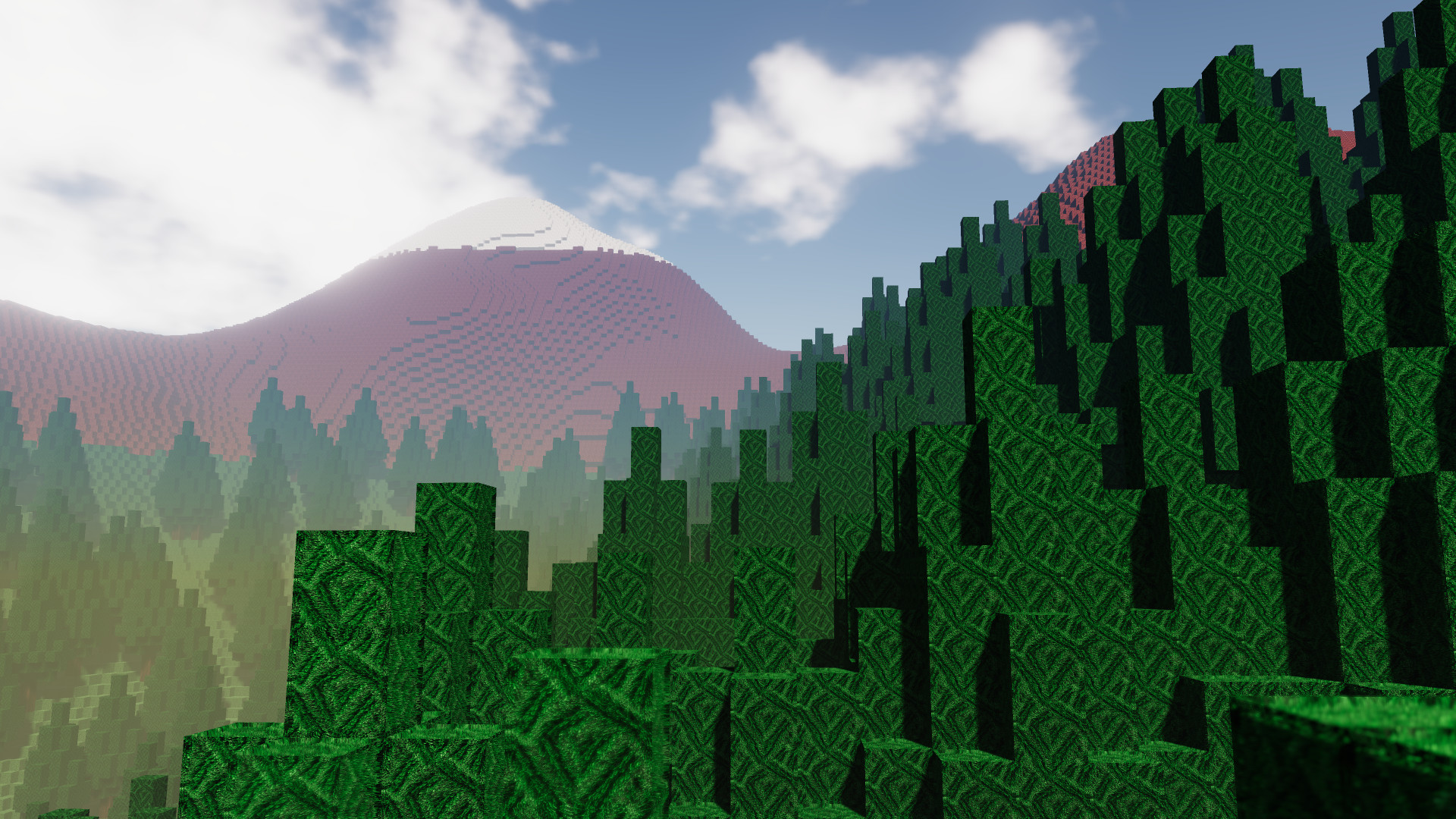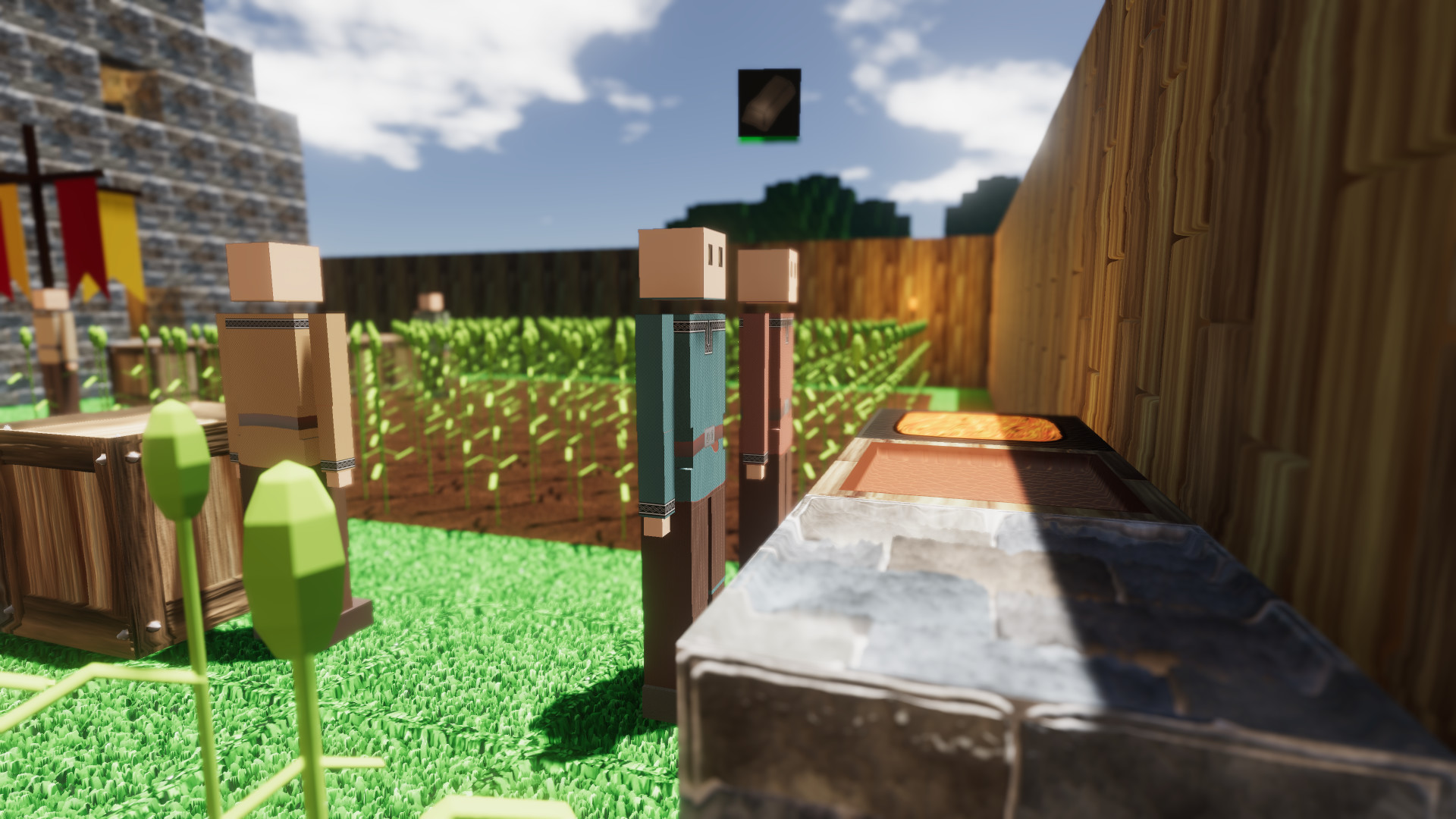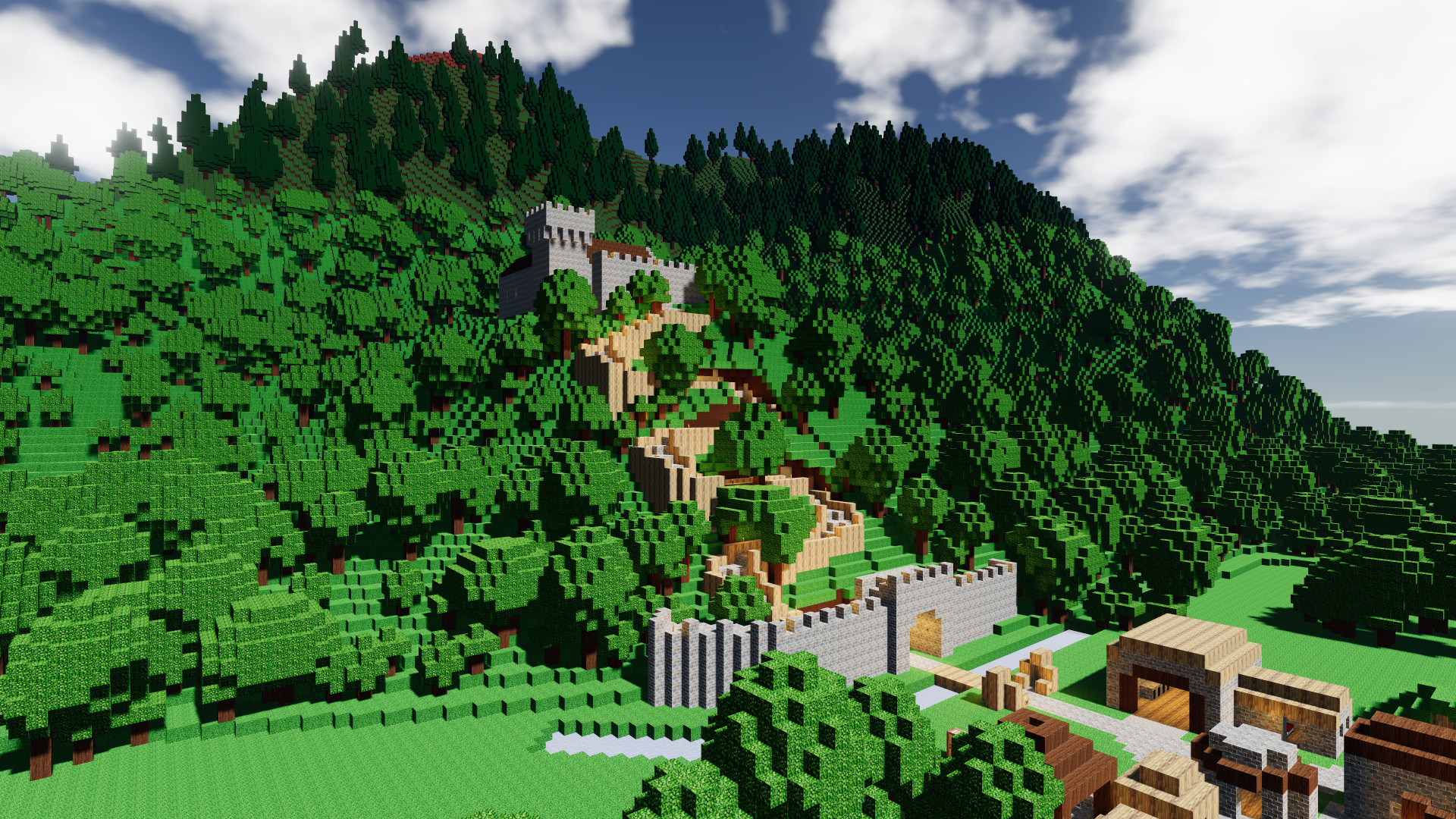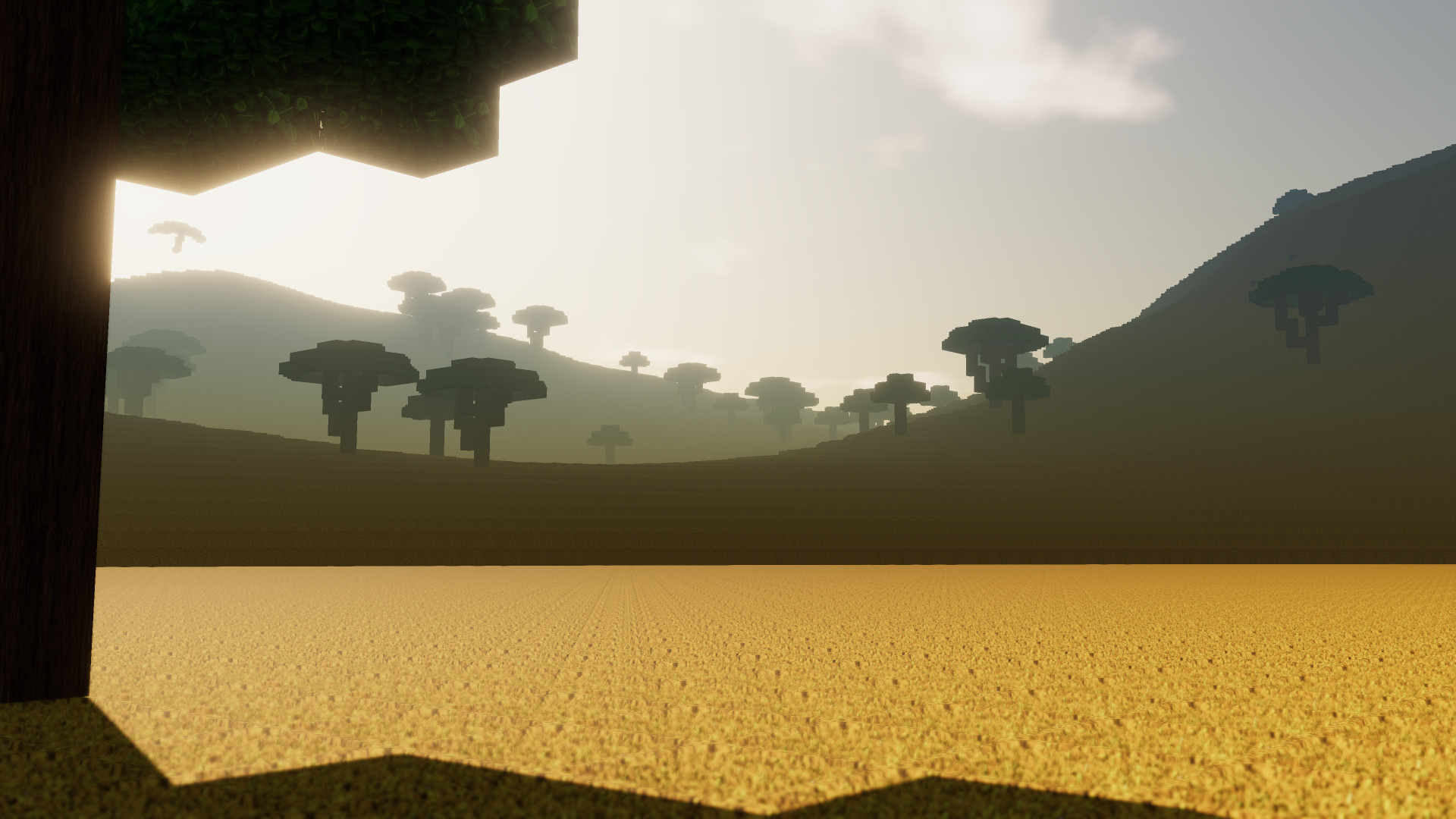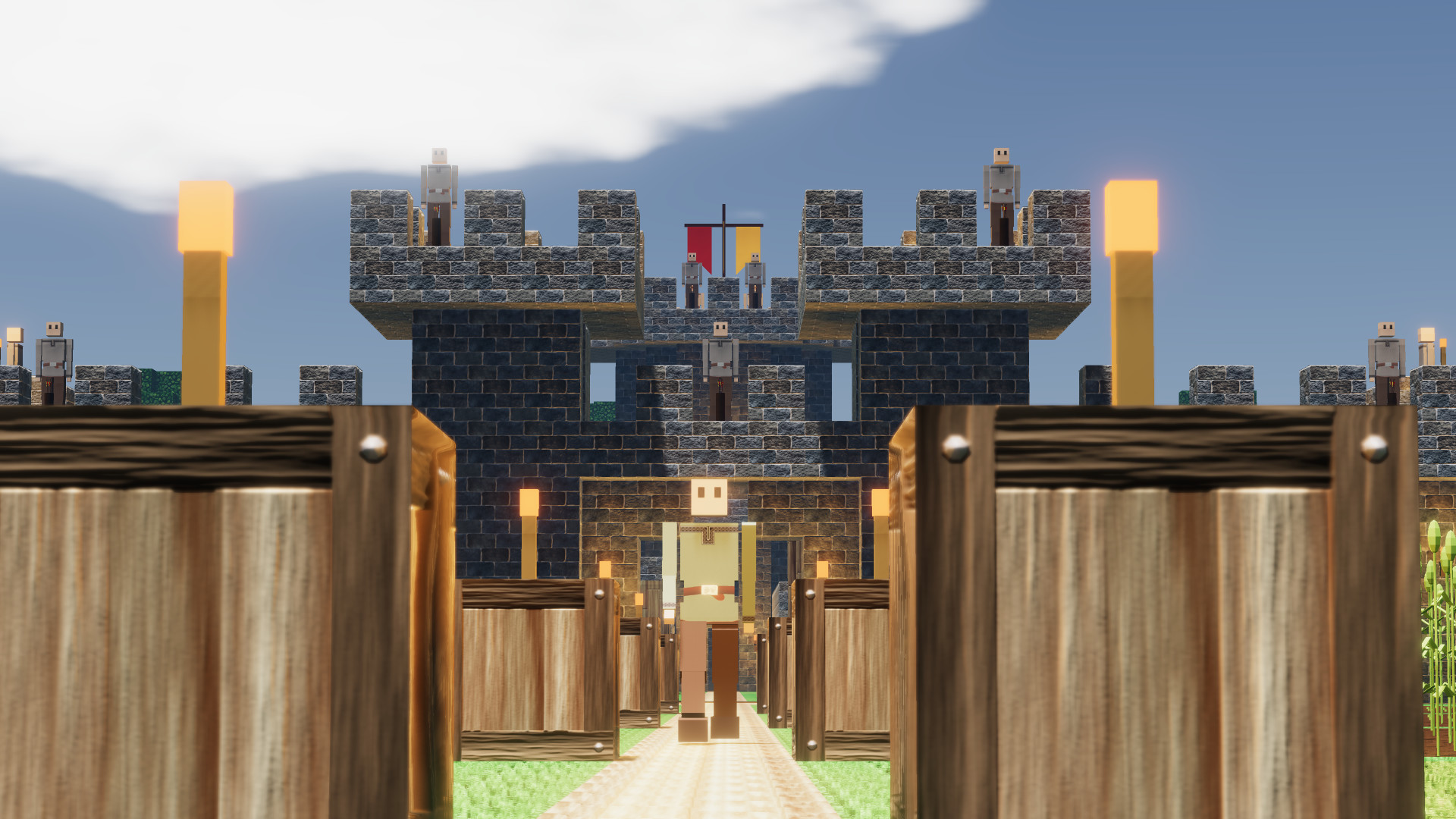- Multiplayer support: play with friends and strangers!
- Advanced pathfinding: colonists and zombies will find their way in the world you've build. They will dynamically navigate stairs, bridges and tunnels.
- Explore a world with realistically placed biomes. A giant jungle in the center of the world, surrounded by savannas, deserts and temperate biomes. Two polar regions in the far north and south.
- Support for textures and language packs created by players
- Dynamic lighting and eye adaptation
- Voice your suggestions and be part of the development of Colony Survival!

When we started working on the first prototype for Colony Survival eight years ago, we didnt have a detailed plan worked out. Zun made a voxel engine, and Id loved to see walking, working, living inhabitants in that world.
When Colony Survival was released into Early Access, nearly four years ago, it wasnt much more than that. A voxel world where farmers, miners, guards and crafters could be recruited and set to work. But it didnt have a real purpose. We just tried to copy some elements from history and the real world into a simulation. Do history and the real world have a purpose?
Complex philosophical considerations about the nature of reality aside, the history of human civilization does seem to have resulted in something. Weve gained a lot of knowledge about biology, chemistry, physics, engineering, electronics and a lot of other domains. Were constantly using that knowledge to build tools and machines. These items help us gain further knowledge, and they provide us with wealth, comfort and security. This cycle seems to have happened continuously, from the invention of writing and the wheel to the realization of flatscreens and bluetooth.
But these innovations seem to happen relatively spontaneously, without much top-down steering. Johannes Gutenberg wasnt commanded by the king to invent the printing press. It seems his family was involved with mints and goldsmiths, acquiring knowledge and skill in metal working there.
When Charles Babbage built the first mechanical computer, he wasnt following anybodys orders. He inherited an estate, making him independently wealthy. He had a strong interest in mathematics, and partnered with Joseph Clement who could use advanced machine tools.
These inventors worked independently, but they did consciously try to produce the machines they invented. That isnt even always the case. When Alexander Fleming discovered penicillin, the first antibiotic, he wasnt even looking for anything like that. He was investigating bacteria, and accidentally contaminated one of his experiments with a fungus. That fungus turned out to be penicillium, one that produces penicillin.

How do you add such innovations to a strategy game like Colony Survival? Telling a colonist go invent penicillin now is deeply unrealistic. But having it appear completely randomly would be strange and unsatisfying as well. The true road towards inventions seems to be like this. Make sure youve got a civilization of many, many millions. Most of these people will not directly work on inventions, but theyre vital to keep that gigantic civilization running on a day to day basis. Tens of thousands of people will have a combination of education, technical skills and some wealth. A part of that group will experiment and try to innovate. Some will fail, some will discover gradual improvements, and others will successfully invent new machines and theories that revolutionize the world, like the printing press and the theory of evolution.
With the Happiness System and the Colony Points System, we tried to add some of these costs to Colony Survival. You cant innovate directly, youve got to sustain a large semi-civilized group of people, which requires a relatively large and advanced economy. Feed thousands of goldsmiths for many generations, and finally, one will invent the printing press.
With that mindset, I thought about realistic logistics between many colonies. I wanted it to be a complex economy with many advanced colonies that all contain educated, skilled workers who can contribute to technological innovations. This requires a very complex trade network, with an enormous amount of connections between colonies. Setting up all these connections manually would be extremely tedious and unpractical, so that's why I thought about automated systems that utilize things like currency.
But were developing a game that should be fun to play, not a historical simulation that should be completely accurate. And thus, last week, we decided to take a different approach: one massive, advanced capital that is supplied by many outposts. This simplifies the required logistics, and makes it much more approachable for the player.
What should the purpose of this capital be? Just to make its inhabitants very wealthy and comfortable while exploiting the outposts? That would be pretty harsh. Solely to make technological progress, which can be used to make even more progress? Thats not very sustainable and a bit pointless as well.

A B-25 assembly line at North American Aviation's Inglewood, California, plant. 1942. Source .
So, weve looked at historical top-down regimes. Ancient Egypt, where the faraos commanded tens of thousands of people to build the pyramids. The Roman Empire, where one city exploited three continents, which funded massive armies. The Soviet Union, which built many rockets and won all the first steps of the Space Race.
Some megaprojects like the ones above would be great, to give purpose to your capital and its network of outposts. Of these projects, weve mainly discussed massive armies this week. Were pretty excited about that idea! That could be an interesting gameplay mechanic which consumes gigantic amounts of resources. In real life, situations like World War I & II are also deeply connected to technological progress, but in a more intended way than the spontaneous inventions mentioned above. Consider the Manhattan Project which produced the first nuclear weapons, or the German Wunderwaffe .
Were considering adding a list of MonsterForts. These would be in a different dimension, which has to be accessed by some kind of portal or teleporter. The player would have to recruit, arm and train large amounts of soldiers in the capital, and would be able to send these to attack the MonsterForts. There, the reverse of the night-gameplay would happen. Monsters would have defenders on the walls, and a long line of colonist-soldiers would swarm the gates, trying to survive the hostile projectiles and to destroy the MonsterBanner. Destroying a number of these MonsterForts would be required to continue progressing.

Women are trained as engine mechanics in thorough Douglas training methods, at the Douglas Aircraft Company in Long Beach, California, in October of 1942. Source.
Providing these soldiers with weapons, armor and other tools and equipment will require the efforts of your entire empire. Hundreds of miners, smelters, smiths and engineers will have to work. A large amount of foresters and woodcutters is necessary to supply them with fuel. Many farmers are needed to produce enough food. The armies can evolve throughout time, from simple spearmen, to fully armored knights, to riflemen.
This idea is still work-in-progress, and might be unceremoniously discarded like the Guilders-idea was. We've still got specific issues to work out (Can you build/destroy blocks near the MonsterForts? What will the reward be?) and alternatives to consider. It'll require a months-long process to set up support for alternative dimensions.
But we believe this will be a rewarding goal for both Colony Survival in general, and the system of outposts and realistic logistics in specific. Ultimately, youre the judge of that. Let us know in the comments or on Discord how you feel about these ideas!
Bedankt voor het lezen :D
Reddit // Twitter // YouTube // Website // Discord
Minimum Setup
- OS: Ubuntu 12.04+. SteamOS+; 64-bit
- Processor: Intel Pentium G620 (2.5 Ghz dual core) or equivalentMemory: 2 GB RAM
- Memory: 2 GB RAM
- Graphics: Intel HD Graphics 5000. 1280x720 display
- Storage: 300 MB available spaceAdditional Notes: Work in progress: new features may raise the bar. optimizations may lower the bar
Recommended Setup
- OS: Ubuntu 12.04+. SteamOS+; 64-bit
- Processor: Intel i5-2300 (2.8 GHz quad core) or equivalentMemory: 4 GB RAM
- Graphics: Nvidia GTX 750 or equivalent. 1920x1080 display. supporting openGL 4.2+Network: Broadband Internet connection
- Storage: 1 GB available spaceAdditional Notes: Work in progress: new features may raise the bar. optimizations may lower the bar
[ 6414 ]
[ 7148 ]
[ 3628 ]
[ 4850 ]


